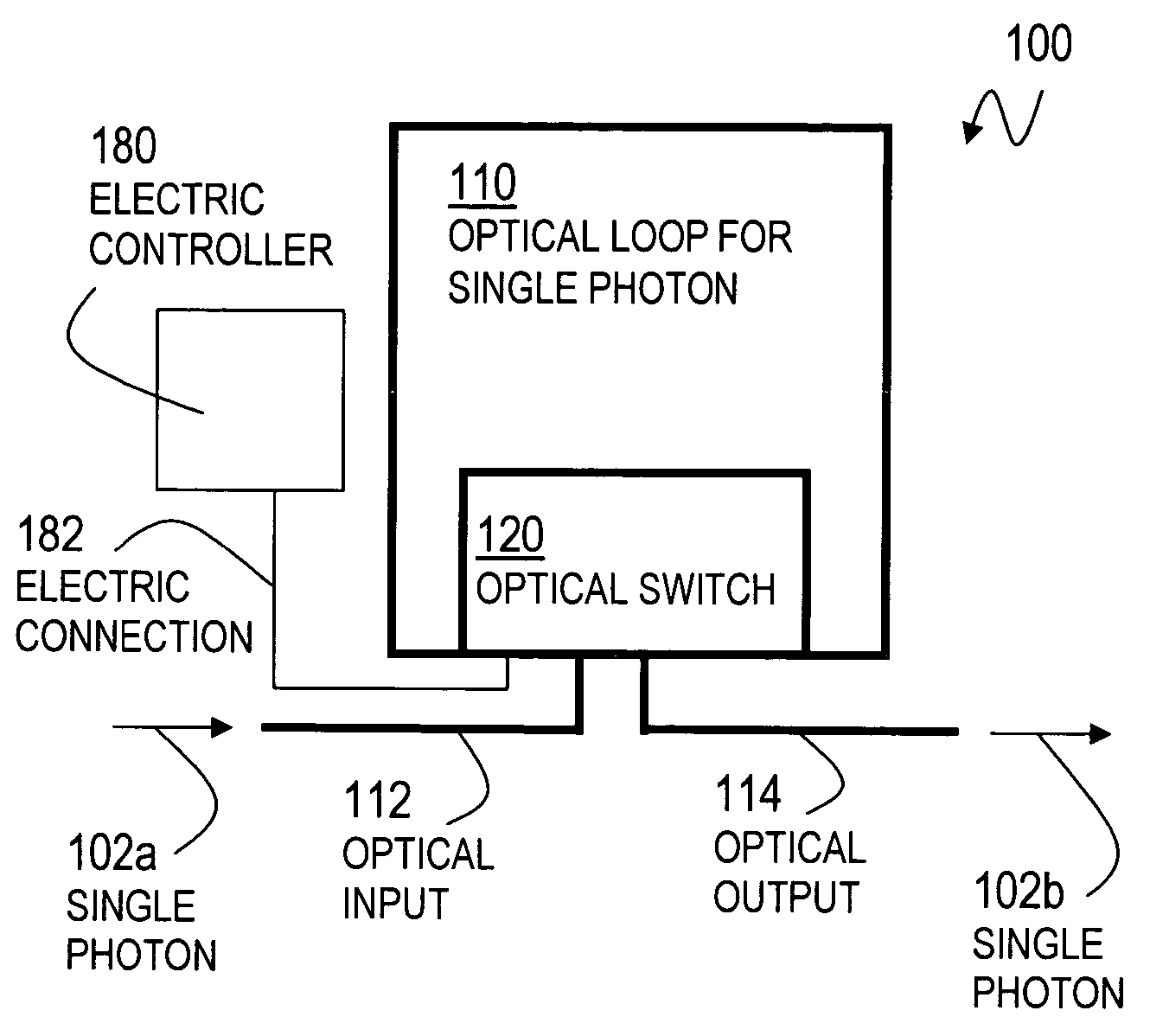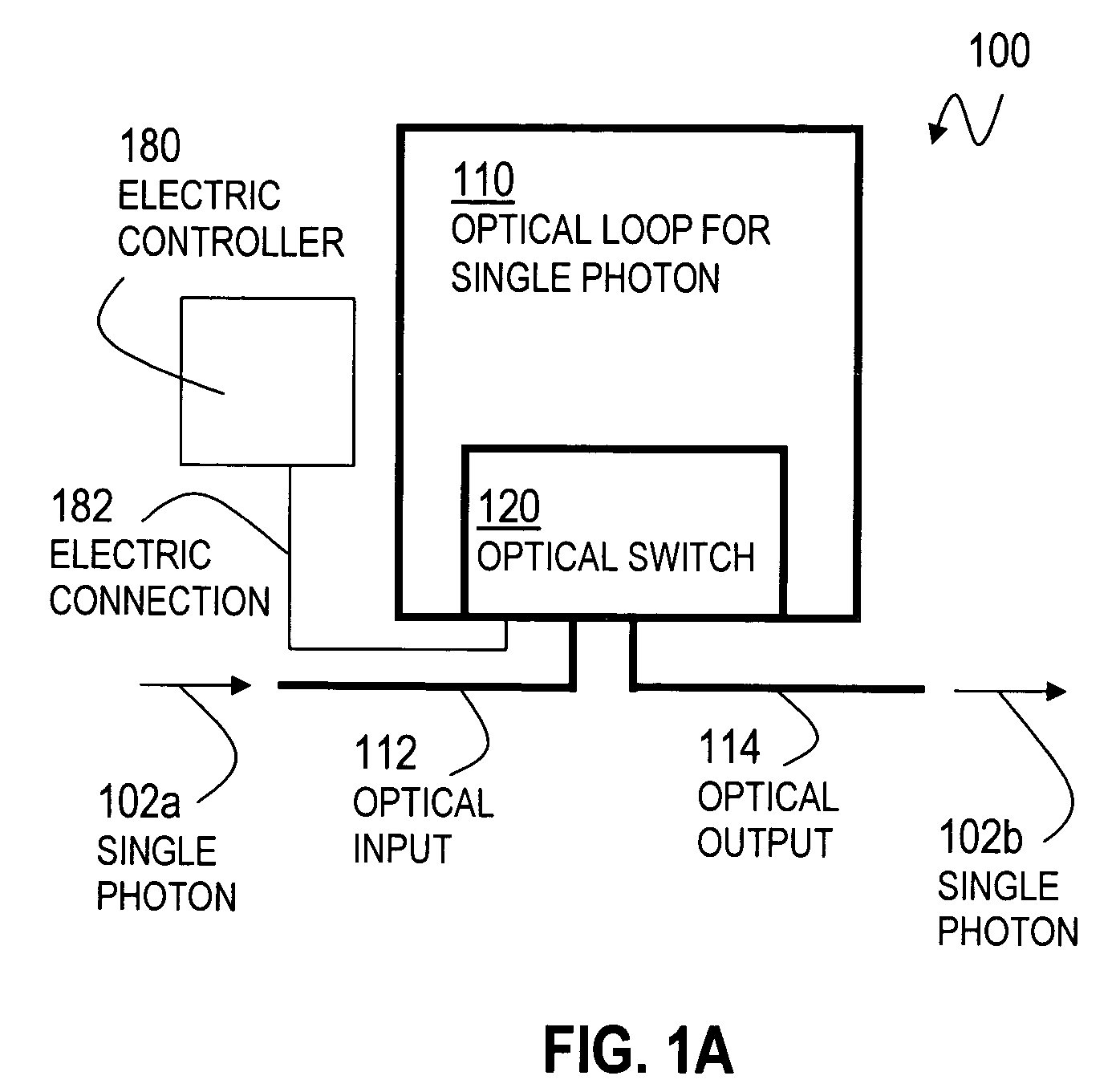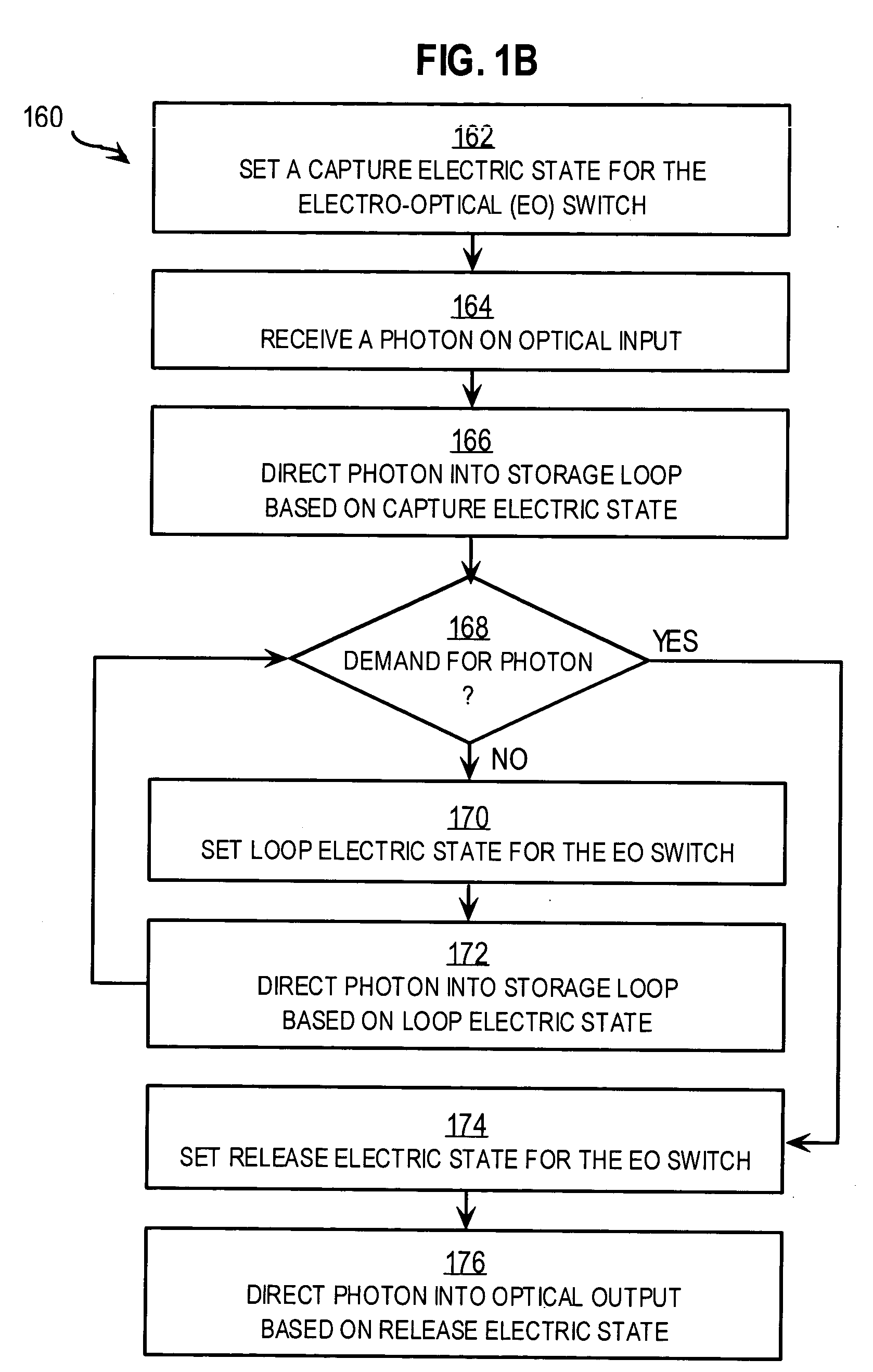Method and apparatus for single-photon source and quantum memory
a single-photon source and quantum memory technology, applied in the field of quantum information processing, can solve the problems of preventing the output of photons, unable to satisfactorily implement devices, and difficulty in isolating qubits from uncontrolled interactions with the environment,
- Summary
- Abstract
- Description
- Claims
- Application Information
AI Technical Summary
Benefits of technology
Problems solved by technology
Method used
Image
Examples
embodiment 201
[0087] Embodiment 201 includes an EO switch 230b, and includes delay component 222 and optical paths 210e, 210f in optical path 210b.
[0088] EO switch 230b includes a polarizing beam splitter (PBS) 232 that reflects vertically polarized photons and transmits horizontally polarized photons incident along any of several spatial modes. One input mode of PBS 232 serves as one switch input 231a of switch inputs 231.
[0089] EO switch 230b also includes a Pockels cell (PC) 234 that is used to rotate the polarization of the photon circulating in the optical loop. The Pockels cell 234 is configured so that it does not affect a photon incident on the Pockels cell 234 unless the Pockels cell 234 is turned "on" by a classical pulse from the processor 280 of the controller. When it is turned on, the Pockels cell 234 rotates the polarization of an incident photon by 90 degrees (.pi. / 2 radians) so that the single photon emerging from the Pockels cell 234 has a flipped polarization state. For example...
embodiment 600
[0132] FIG. 6A is a block diagram that illustrates a storage and retrieval device used as a cyclical quantum memory (CQM) for a qubit represented by an arbitrary polarization state of a single photon, according to an The CQM 600 involves an optical loop that includes a Sagnac interferometer switch 630 and a storage line 641.
[0133] The Sagnac interferometer switch 630 is formed with mirrors 644a, 644b, a polarizing beam splitter (PBS) 632, and an electro-optic (EO) device 634. The EO device is configured to do nothing in an off electrical state, and to swap vertical and horizontal polarization of an incident photon in an on electrical state. That is, when the EO device 634 is in an on electrical state, an incident photon with an arbitrary polarization state given by polarization state vector .alpha. .vertline.H]+.beta..vertline.V] is emitted with a swapped ("bit-flipped") polarization state given by polarization state vector .beta..vertline.H]+.alpha..vertline.V]. This rotation of h...
PUM
 Login to View More
Login to View More Abstract
Description
Claims
Application Information
 Login to View More
Login to View More - R&D
- Intellectual Property
- Life Sciences
- Materials
- Tech Scout
- Unparalleled Data Quality
- Higher Quality Content
- 60% Fewer Hallucinations
Browse by: Latest US Patents, China's latest patents, Technical Efficacy Thesaurus, Application Domain, Technology Topic, Popular Technical Reports.
© 2025 PatSnap. All rights reserved.Legal|Privacy policy|Modern Slavery Act Transparency Statement|Sitemap|About US| Contact US: help@patsnap.com



